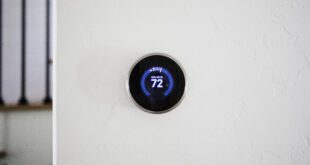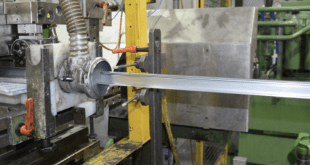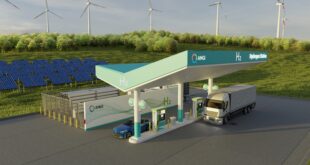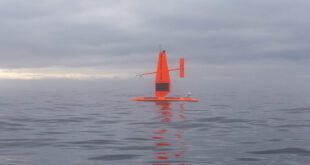NYSERDA funds 17 energy-saving transportation ideas from Long Island to Rochester
$4.6 million to help curb greenhouse gas emissions, create jobs and decrease reliance on fossil fuels.
The New York State Energy Research and Development Authority (NYSERDA) today announced the award of $4.6 million to help 17 New York State companies develop and commercialize innovative new transportation technologies that will reduce greenhouse gas emissions, decrease reliance on fossil fuels, and create jobs.
Six of these projects are located in New York City or Long Island.
The funding will support projects including an electric motorcycle designed for the urban environment, a company making car parts from mushrooms and farm refuse, and a system that would shorten jetliner idling times. Other projects involve a product that would reduce fuel consumption on ferries and others to reduce diesel engine pollution.
“The imaginative technologies being explored here will help create green jobs and also help New York meet its goals of reducing its greenhouse gas emissions,” said Francis J. Murray Jr., President and CEO of NYSERDA. “NYSERDA is pleased to continue investing in clean energy business in New York that will strengthen the state’s clean energy economy.”
The NYSERDA funding will leverage $7.5 million of private sector investment to bring total funding for these projects to $12.7 million. Each company is required to match NYSERDA’s funding with their own investments, and funds will be awarded following development of a final contract.
The investments will support demonstration projects, new product development and feasibility studies. The $4.6 million for the projects comes from statutory funds ($3.1 million), Regional Greenhouse Gas Initiative cap and trade auction proceeds ($850,000) and Systems Benefit Charge funds raised through electric bills ($650,000).
Details of projects:
Metro-New York area:
· New York Water Taxi (Brooklyn) seeks to continue work on the analysis and design of a vessel-docking system that would end the need for ferry operators to run their engines at high speed while loading and unloading passengers. The project seeks to reduce fuel use and emissions. NYSERDA funding: $150,000
· University Transportation Research Center at CUNY (New York) seeks to enhance Roosevelt Island’s pneumatic garbage transport system (basically a giant, underground vacuum cleaner) so that it can also accommodate recycling and the disposal of commercial waste. If successful, the project could virtually eliminate truck garbage hauling on Roosevelt Island. NYSERDA funding: $50,000
· Brooklyn Motorized Corp. (Brooklyn) is building a light-duty electric motorcycle designed to be used in an urban environment, which would reduce pollution and gas consumption. NYSERDA funding: $500,000
· Lawbuilder Consulting (Carle Place) is analyzing the potential use of New York City mass transit infrastructure to deliver retail goods to downtown Manhattan, cutting down on pollution and truck traffic. NYSERDA funding: $150,000.
Long Island
· Stony Brook University seeks to improve vehicle fuel economy with a thermoelectric generator that would capture energy previously lost through heat exhaust. The technology could increase fuel efficiency 5 to 10 percent. NYSERDA funding: $500,000
· KLD Associates, Inc. (Hauppauge) uses software and sensor devices to create more efficient traffic flow by controlling traffic lights. The system, currently being tested on Staten Island, could reduce vehicle idling and average commute times. NYSERDA funding: $376,000
Hudson Valley:
· Lower Hudson-Long Island Resource Conservation & Development Council Inc. (Highland), with NYC Soil & Water Conservation District (New York), is working on a plan to transport energy-efficient truck trailers – carrying produce grown in upstate New York — on barges traveling the Hudson River and Long Island Sound. The idea would reduce truck traffic and save on fuel consumption and diesel emissions. NYSERDA funding: $50,000
· Taconic Energy Inc. (Salt Point) is working on a diesel additive that would increase fuel efficiency by reducing engine friction. NYSERDA funding: $500,000
Capital Region:
· Ecovative Design LLC (Green Island) seeks to combine mushrooms with farm castoffs like rice or buckwheat hulls into a rigid foam used for automobile interior trim parts and cushions. The product is biodegradable, reducing landfill waste, and uses farm refuse normally thrown away. NYSERDA funding: $441,000
· Folsom Technologies International (East Greenbush) is developing a continuously-variable transmission that allows an engine to operate at more efficient speed-torque combinations, and that also provides a regenerative braking feature that captures and reuses energy otherwise lost during braking. NYSERDA funding: $500,000
· Donald J. Geisel & Associates Inc. (Clifton Park) seeks to develop the HydroTracker, a sensor device that detects moisture intrusion into concrete bridge decks, and that is faster, simpler and less costly than traditional methods used to spot areas needing repair. The product replaces the need for expensive and time-consuming core sampling of bridge concrete. NYSERDA funding: $149,000
North Country:
· Clarkson University (Potsdam) is developing active and passive systems to reduce aerodynamic drag on big rig trucks, which accounts for up to 65 percent of fuel consumption when traveling at highway speeds. NYSERDA funding: $498,000
Central New York:
· Syracuse University (with BorgWarner of Ithaca) is working on a diesel engine fuel injection system that would create a “supercritical” mixture of fuel and carbon dioxide for a more efficient, less polluting engine. NYSERDA funding: $260,000
· Sensis Corporation (E. Syracuse) is working on software that enables more efficient sequencing of aircraft movements at airports so that planes spend less time idling on the tarmac, making for shorter wait times for passengers. NYSERDA funding: $208,000
· PAR Logistics Management Systems (New Hartford) seeks to commercialize a system that enables a tractor-trailer operator to monitor the tire pressure in all 18 wheels without leaving the driver’s seat. Underinflated tires can reduce fuel economy by 2 percent and are a safety problem. NYSERDA funding: $200,000
Rochester area:
· American Aerogel Corp. (Rochester) wants to use a high-tech material to insulate refrigerated trailers, reducing the energy needed to keep the interior cold while also increasing cargo space and extending the life of the trailer. NYSERDA funding: $331,000
· Environmental Energy Technologies Inc. (Rochester), with Blue Lake Associates (Rochester) are working on a device that could reduce pollution from a diesel engine by generating an ionic field to oxidize particulate matter in the exhaust, breaking down complex pollutants and making engines more environmentally friendly. NYSERDA funding: $270,000
 Alternative Energy HQ solar power for homes, wind energy, and bio fuel issues
Alternative Energy HQ solar power for homes, wind energy, and bio fuel issues






